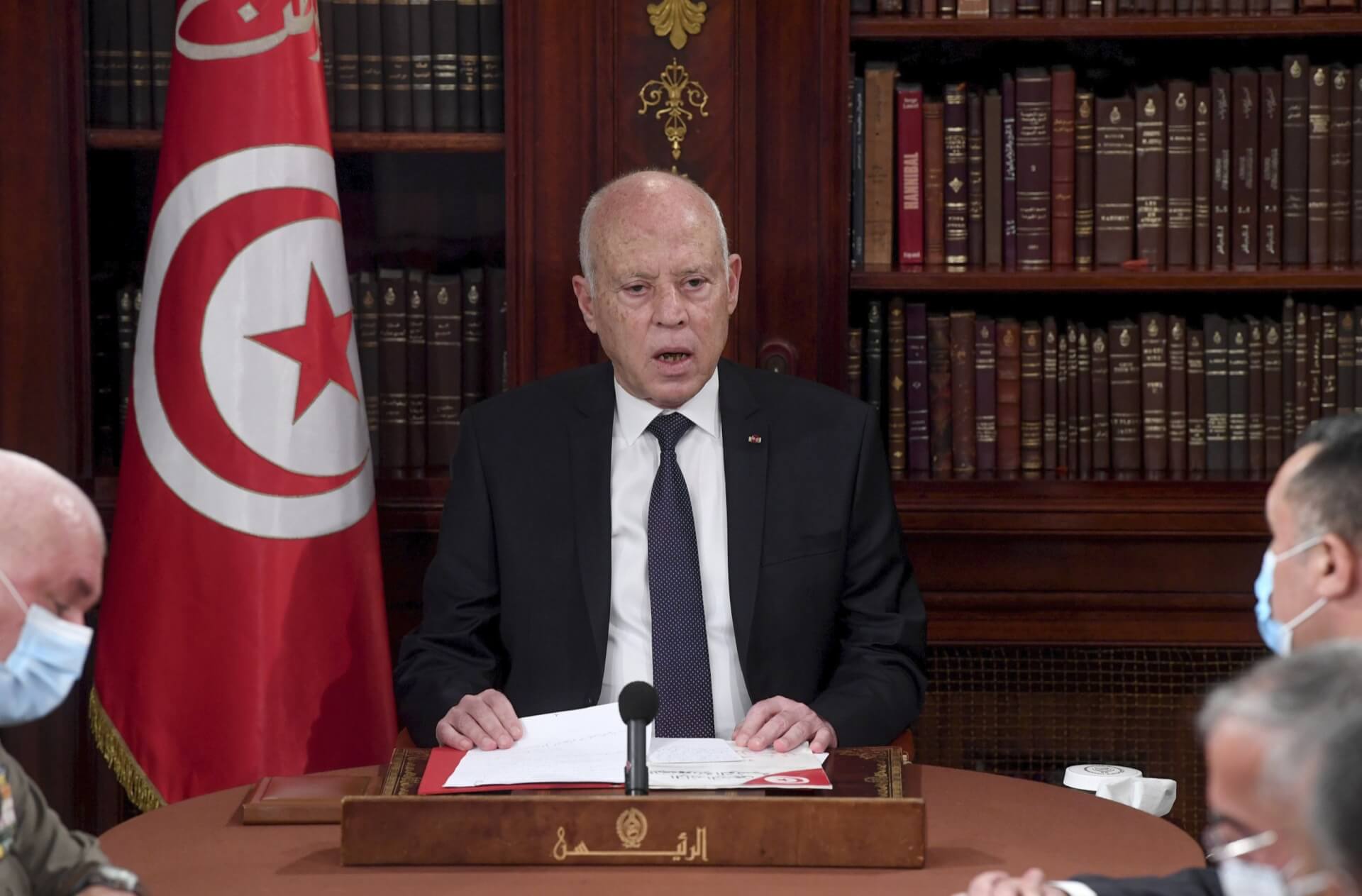On Saturday, Tunisian President Kais Saied revealed that he was planning to amend the country’s constitution, a move that his critics have called a coup. Saied, who seized power in July, also announced that a new government would be unveiled “as soon as possible” without giving a specific date.
According to Saied, since “the Tunisian people rejected the Constitution,” changes are necessary. Insisting that he “respects” the constitution, Saied said it is “necessary to introduce amendments to the text” because “sovereignty belongs to the people” and “constitutions are not eternal.” He also mentioned that amendments would “be made within the framework of the constitution.” Moreover, Saied said the cabinet will be formed “after selecting the most honest personalities.”
Reacting to Saied’s latest move, the Ennahda Party, Tunisia’s largest opposition party, expressed “its categorical rejection [of] any suspension of the application of the Constitution [or] change in the political system.” Stating that the 2014 Constitution formed the “basis” of Tunisia’s political and social contract, the Ennahda warned that changing it would steer Tunisia away from the path of democracy.
The Tunisian General Labour Union (UGTT), the country’s largest labour union, also criticised the move and called on Saied to allow for fresh legislative elections to form a new parliament. The UGTT, which has so far backed Saied’s actions since he came to power in July, has been urging the President to announce a new government and prepare a roadmap to address the political crisis. However, the Union has strongly opposed any amendments to the constitution.
Also Read: A Decade After the Success of the Arab Spring, Is Tunisia Following Egypt’s Path?
In July, Saied dismissed the country’s Prime Minister (PM), indefinitely suspended the parliament, lifted the immunity of all lawmakers, and said that he would appoint a new PM. The decision was condemned by the opposition, who called it a coup. The Ennahda Party said it was “unconstitutional, illegal, and invalid” and marked a “return to dictatorship.”
Saied quoted Article 80 of the Tunisian constitution to justify his actions. As per the Article, in the “event of imminent danger” to the Tunisian republic, the President “may take any measures necessitated by the exceptional circumstances.” It adds that the President should consult with the PM and Speaker of Parliament before taking any action and that any such measures must ensure “a return to the normal functioning of state institutions and services.”
However, seven weeks after he seized power, Saied is yet to name a PM and return the country to normalcy.
The international community, including the United States (US) and the Group of Seven (G7), have urged the Tunisian President to end the political stalemate. In July, US Secretary of State Antony Blinken asked Saied to “adhere to the principles of democracy [and] maintain an open dialogue with all political actors.” Furthermore, G7 members called on Saied to quickly return the country to “a constitutional order, in which an elected parliament plays a significant role.”

